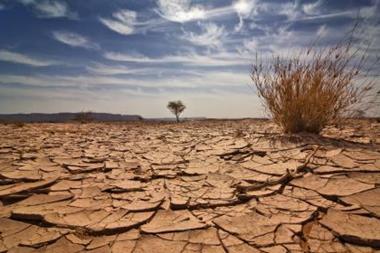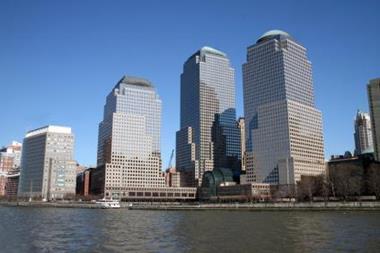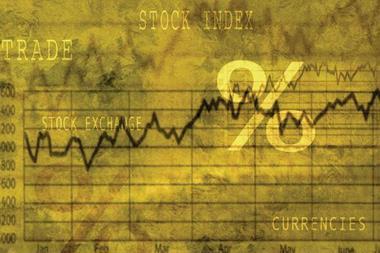Global risks are systemic and collaborative responses are needed to tackle their interdependency, says the World Economic Forum
Last year turned out to be a risky one for international business and 2008 promises to be no less boring, according to a new report released by the World Economic Forum.
The World Economic Forum’s latest report, Global Risks 2008, provides an assessment of global risks and trends for the year ahead, focusing on a number of problem areas.
The report named four key issues, systemic financial risk, food security, supply chain disruptions and the role of energy. "Systemic financial risk is the most immediate and, from the point of view of economic cost, the most severe," the WEF said.
After a busy year—interspersed by major events including; the subprime meltdown, a weakening US dollar, high energy prices, a deteriorating security situation in Afghanistan, constitutional turmoil in Pakistan, and increasingly more destructive natural catastrophes—many of the issues raised by the report are familiar.
While some of the risks may be the same as in 2007 the authors argue there is a higher level of uncertainty than in the past, particularly in the run-up to a US presidential election.
The significance of the report lies in its tendency to set the tone for private sector policy decisions by highlighting key areas of risk. Many of which will be the focus of discussions by world leaders at the annual meeting of the World Economic Forum in Davos, Switzerland later this month.
“One of the biggest concerns is whether or not technology will continue to bridge the shortfall
Christian Mumenthaler, member of the executive board, Swiss Re
Global Risks 2008 points to high levels of uncertainty surrounding certain key economic and political risks, and the interdependency of risk leading to the necessity for improved governance based on collaboration.
One of the principal themes developed in the report is that global risks are highly interdependent and systemic, making it harder for companies and countries to identify who is responsible and mitigate major risks.
For example at the nexus of energy risks are climate change, economic and geopolitical risks. Therefore the report sees a limited scope for a fall in energy prices over the next decade.
The report also warns that food security, which in some cases has given rise to food riots, will become an increasingly complex political and economic problem over the next few years. It suggests that the drivers of global food insecurity—biofuels, population growth and climate change—are likely to sharpen over the coming decade.
It is predicted that by 2010, 30% of corn produced in the US will be used for fuel.
‘One of the biggest concerns is whether or not technology will continue to bridge the shortfall,’ said Christian Mumenthaler, member of the executive board, Swiss Re.
“Systemic financial risk is the most immediate and, from the point of view of economic cost, the most severe
World Economic Forum, Global Risks 2008
Another finding detailed in the report relates to the US subprime mortgage crisis. The global scale of the ‘credit crunch’—which may have been overlooked by some industry experts—raises fundamental questions about vulnerabilities within the current financial model, said the research.
According to David Nadler, vice chairman, office of the CEO, Marsh & McLennan Companies, a transformation in the financial markets over the last two decades has created a more complex, less transparent risk environment and opened the door to a system-wide financial crisis. Many of the developments, he said, have increased the financial system’s capacity to assume risk but also decentralised risk ownership making it more difficult to control.
The researchers also expressed fears that the current liquidity crunch could spark a US recession in the next 12 months with the UK’s prominent financial sector making it ever more vulnerable.
A serious financial crisis could also turn attention away from less pressing long term risks such as climate change, said the research. "Should systemic financial risk lead to serious deterioration in the world economy, the prospects for collaborative mitigation may be reversed on several fronts simultaneously as attention turns to more immediate concerns," WEF said.
Elsewhere, the report claims that globalisation of trade and industry—while generally increasing efficiency and global prosperity—has had a number of unintended consequences.
“The significance of the report lies in its tendency to set the tone for private sector policy decisions by highlighting key areas of risk
Nadler argued the hyper optimisation of supply chains and outsourcing has increased vulnerabilities. The tendency to relocate processes to areas with comparative advantages could, for example, lead to risks becoming concentrated in one geographic location.
The report authors also proposed steps to help tackle these challenges. ‘The interconnectedness of global risks discussed in this report reflects the need for a collaborative framework for response,’ said Professor Klaus Schwab, founder and executive chairman of the World Economic Forum.
The establishment of Country Risk Officers was recommended to help improve risk management at the national level. Country Risk Officers, said the report, could offer the capacity to exchange information about cross-border global risks and also improve the global ability to anticipate and respond to risk.
‘In order to maintain the benefits of globalisation, improved governance of globalisation is vital,’ added Charles Emmerson, associate director of the World Economic Forum and editor of the report.
‘The world has become more complex and interconnected with risk becoming systemic,’ warned Sean Cleary, strategic adviser, World Economic Forum, ‘We have to up our game very dramatically.’
The trends are obvious, he added. ‘The real challenge is to modify behaviour and create effective collaborative responses.’




















No comments yet